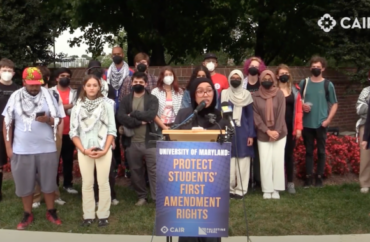
University must allow Students for Justice in Palestine’s Oct. 7 vigil after judge cites free speech concerns
A federal judge ruled Tuesday that the University of Maryland Students for Justice in Palestine can proceed with its Oct. 7 vigil after the school banned it.
The judge granted the motion for a preliminary injunction in favor of SJP primarily based on First Amendment concerns. The vigil will commemorate those killed in the Israel-Gaza conflict on the anniversary of the attack.
The University of Maryland released a statement following the court’s ruling, assuring the public that it would “abide by, the court’s decision, and will work with all registered student organizers of events requested for October 7.”
The district court ruling came after the Maryland office of the Council on American-Islamic Relations and Palestine Legal filed a lawsuit on behalf of Students for Justice in Palestine, challenging UMD’s cancellation of the vigil.
The lawsuit sought “to vindicate the First Amendment rights of University of Maryland’s Students for Justice in Palestine,” Ahmad Kaki, legal assistant with the CAIR Legal Defense Fund, said in an email statement to The College Fix.
“The University of Maryland initially made the right decision when it granted SJP permission to host a vigil on October 7,” Kaki said.
“It marks one year of Israel’s ongoing genocide in Gaza and the students wanted to peacefully and respectfully mourn the 40,000—a conservative estimate—lives taken by Israel in Gaza since that day,” he said.
The university had initially approved the event, which was to be organized by Muslim and Jewish students, but later banned all student-led expressive events on Oct. 7, citing safety concerns.
The College Fix asked the University of Maryland about the school’s free speech policies and its motivation for canceling the event. In an email statement, spokesperson Hafsa Siddiqi referred to the school’s public letter from Sept. 1, which cited safety concerns despite no “immediate or active threat.”
The university justified the cancellation “out of an abundance of caution” and allowed only university-sponsored events that promote reflection on that day.
MORE: U. Maryland SJP hosts ‘martyrs’ event, plans one for Oct. 7
But Kaki at the CAIR Legal Defense Fund argued the university gave in to “massive pressure from anti-Palestinian students and organizations.”
“In doing so, the University violated the First Amendment,” he told The Fix.
Civil liberties groups, including the American Civil Liberties Union, the Foundation for Individual Rights and Expression, and the Knight First Amendment Institute, filed an amicus brief in support of the SJP’s lawsuit. They argued that the university’s blanket ban violated the constitutional rights of its students.
“Anytime you have a university revoke permission for a specific event on campus and then doubles down by issuing a blanket ban on all expressive events on campus on a single day, that’s absolutely concerning,” Graham Piro, a fellow at FIRE’s Faculty Legal Defense Fund, told The Fix.
“Even if the University thinks it’s a blanket ban, it’s still content based…the University is giving into a heckler’s veto, and then it’s trying to cover up that fact by banning all events,” Piro said.
Piro also said this type of ban is not a “typical occurrence.” However, universities often modify events, such as the University of Vermont’s event featuring Mohammed el-Kurd, a Palestinian writer and poet. The event was moved online after backlash and for alleged “safety and security concerns.”
“Universities need to make bonafide efforts to take steps far short of canceling an event … the University of Maryland appears to have failed that test,” Piro said.
FIRE’s Vice President of Campus Advocacy Alex Morey also emphasized the significant free speech concerns raised by the university’s actions, calling them “plain and simple, unconstitutional,” according to an ACLU news release following the injunction.
“Courts don’t take preliminary injunction requests lightly, but it was as clear to the court as it was to our coalition that UMD’s blanket ban would have constituted a serious and irreparable burden on student speech,” Morey stated.
Alex Abdo, litigation director at the Knight First Amendment Institute at Columbia University, described the judge’s ruling as an “important victory for free speech” in a statement.
“It’s unfortunate, though, that it took a federal lawsuit to reaffirm the rule that the First Amendment prohibits public universities from censoring speech based on disagreement with its message or the offense it may cause,” Abdo stated.
MORE: National SJP wants ‘extra credit’ for attending ‘Palestine solidarity’ events
IMAGE: The Washington Examiner/Youtube
Like The College Fix on Facebook / Follow us on Twitter

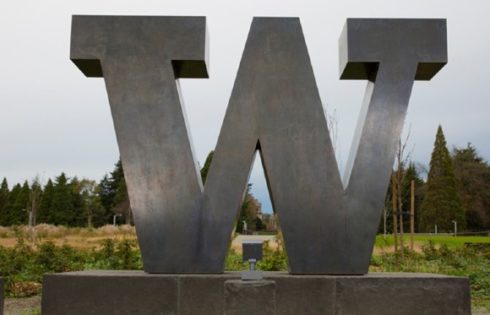
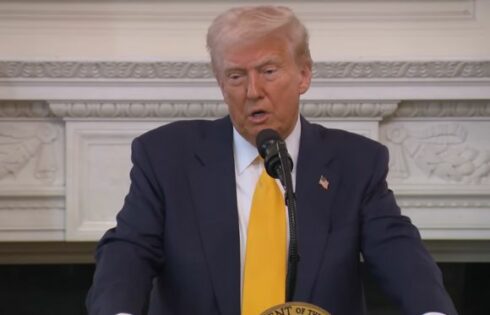
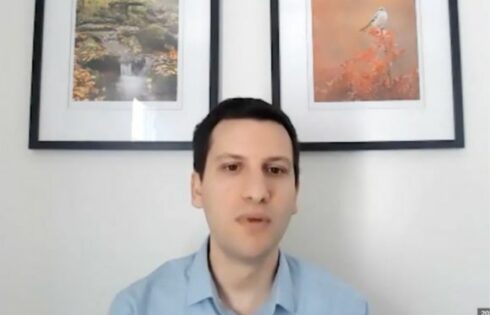
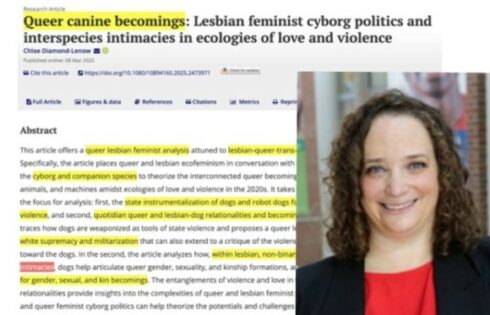

Please join the conversation about our stories on Facebook, Twitter, Instagram, Reddit, MeWe, Rumble, Gab, Minds and Gettr.